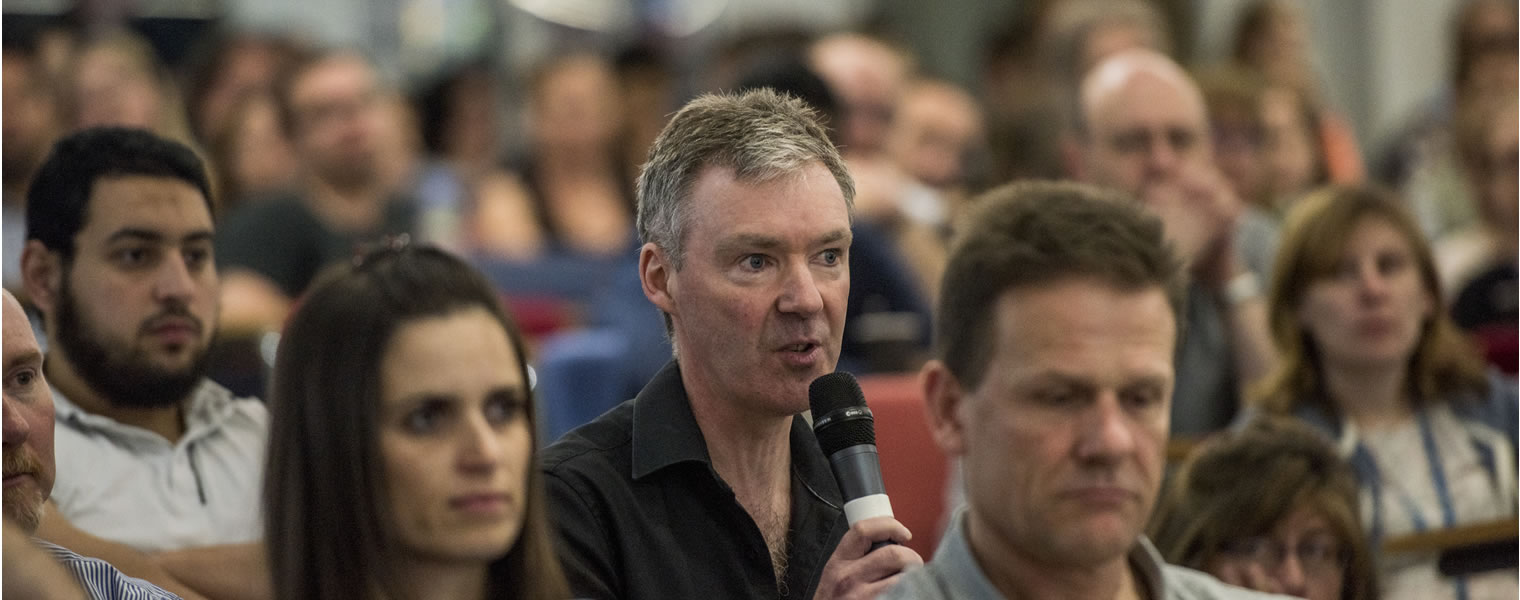Hartley News Online Your alumni and supporter magazine
Many colleagues provided feedback on the All-Staff Address, with the student experience being one of the clear themes. Southampton Connects Staff put some of your frequently asked questions to Sir Christopher.
What will be the impact of the Bronze rating in the first Teaching Excellence Framework (TEF)?
As a starting point, and as many of you will have seen in our announcement, we are appealing our Bronze TEF award and working on demonstrating our strong case over the coming weeks. Our student satisfaction metrics, including satisfaction with teaching, are better than some of those universities who have been awarded Silver and Gold. Even more striking is our student retention and highly-skilled employment data which exceed the benchmarks.
This anomalous outcome is possible because the TEF uses different benchmarks for each institution and higher-performing institutions have higher benchmarks, so the TEF results do not provide a like-for-like comparison between institutions – and this subjectivity is at the heart of my concerns with the framework.
Having said that, this outcome is yet another reason to absolutely prioritise our efforts to improve the student experience across the institution so we can swiftly improve our position. NSS performance, especially teaching, student support, and assessment and feedback are critical alongside entry tariff. We will also need to work even harder in promoting the University.
It is now even clearer that we should anticipate a difficult few years ahead for the University. It would be naive not to expect that this may have some impact on recruitment. We are likely to feel this more severely as, at the same time, we will be holding our nerve on the quality agenda – which I am convinced is still the right strategy.
You talk about urgency and increased pace of delivery. Where do we need to see the most rapid progress with the strategy?
I think the 10-Year Plan is quite specific about the areas we want to improve and exactly what we want to see improve.
For example, in the National Student Survey (NSS) we are ranking about 85 per cent for overall student satisfaction. If we don’t make some serious efforts to move to the 90 per cent threshold quickly, it’s going to have a serious effect. Southampton has received a Bronze rating in the first Teaching Excellence Framework (TEF), which had a strong dependence on the previous three years of NSS. As we understand it at the moment, we have two years before the subject-specific rating comes in, which could have a major impact. That still gives us the chance to address those areas that are not performing very well in student satisfaction.
If you read what students are looking for – and I read all the responses in the NSS survey – it’s not rocket science, it’s straight forward.
Students are looking for support, understanding and recognition that they are valuable members of the University community. It’s not huge things – equitable treatment and a bit of help to achieve the best they can while they are at the University.
Students are extremely positive about those members of staff who do engage with them and extremely negative about those who don’t.
A member of staff at the Address gave the example of a student who had contacted five staff members in their subject and did not even get a reply before they approached this member of staff (in a different subject area) who did address the issue. It’s pretty obvious that student is going to have an extremely dim view of those staff members who didn’t respond and probably give a negative rating in the student survey. That kind of staff behaviour is unacceptable. I’m looking for individuals to reflect on how they engage with their students – we can all take some personal responsibility.
What type of behaviour do you think shows a staff member who does take student experience seriously?
I’m responding to this with many years of personal experience as a lecturer, senior lecturer and professor. The bottom line is, when the student needs to see a member of staff – and it doesn’t happen often – then they need to see them quickly, probably within a day or two of a problem cropping up, not in three-to-four weeks’ time. It’s the nature of how students feel.
At these moments, for the student it is about your accessibility. I’m not saying you have to have an open door policy, but I really want colleagues to be available to see students during the normal working week. I hope they could make a point of indicating when they are available – and that’s not between 9:00 and 9:05 – it’s got to span a rational time frame.
So, that’s two things; make it clear when you are available to see students and have a rational window of availability during the week. That strikes me as being quite simple, reasonable and achievable.
I realise that there are staff who don’t see supporting students as a priority. However, it is a priority as far as the students are concerned, and it has to be a priority for all of us who work here and who have leadership roles, if we are to make the improvements we have identified and at the right pace.
Are there examples of good practice in improving the student experience that we could learn from?
Yes – Physics, for example, was in a challenging position a few years ago. Colleagues have improved their student experience and NSS results, improved their entry tariff and it’s now a high-ranking subject – fourth in the UK.
The key thing, and it is a great accomplishment by the team, is that the department did it themselves. They had support at a faculty level, but they delivered it locally. They are not the only ones; several other subjects have done this.
What are the implications for those who don’t make improvements?
The University has to perform in the framework which the government has set out. The Teaching Excellence Framework (TEF) and the Research Excellence Framework (REF) put pressure on teaching and research respectively as they will have a direct impact on the amount of funding we can attract at a subject level. If we don’t do well enough in these exercises, then subjects will not be able to attract the funding either from tuition fees or from government for research.
There are no subjects we wouldn’t want to support, but there is no bottomless pit of funding, so subjects that cannot attract funding would not be able to go on in the same way. To help with recovery they may need to get smaller in terms of staffing. It’s a tough message, but this is what may be needed.
Of course, it doesn’t have to be like that – as with the example I gave of Physics, it is possible to turn whole subjects around.
It is by colleagues pulling together and delivering on things like student satisfaction, good quality teaching, carrying out research and bringing in research funding, that a sustainable future can be created. And these are the things I hope we all came here to do, to be involved in, to lead – this is what working in a university is all about.
I don’t have a role that is directly student facing in the University, but I would like to make a difference to the student experience. What kind of things could I do?
The truth is, one way or another, all of us affect the student experience. Colleagues that work in the grounds create a fantastic environment for everyone in the community. In my own role, I don’t spend a lot of time with students, but the things I do can have a significant effect on the student experience.
If we do our job well – diligently, on time, to a high quality – it will have a positive effect on the student experience. Every single one of us has an important part to play, and there is no time to lose.
My team is committed to the ‘Simply better’ strategy but we are too thin on resources to make the changes we would like to, including to the student experience. What should we do?
Each of us can reflect on this and each manager can have the conversation with their team about what ‘Simply better’ looks like – what we should focus on, what activities make the biggest contribution to the University, which are more peripheral, even if we are doing them very well.
If people feel things aren’t being done in the best way, let’s have a look at it. I want people to feel empowered to come forward with suggestions about how we can do things better. Just because it’s been done one way for many years, it does not mean it has to always be done that way. I would like to create some sense of flexibility and improvement in what we do, while delivering to high standards.

